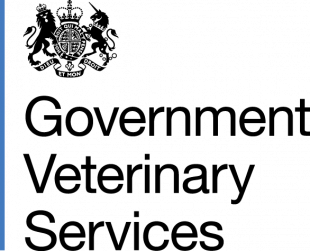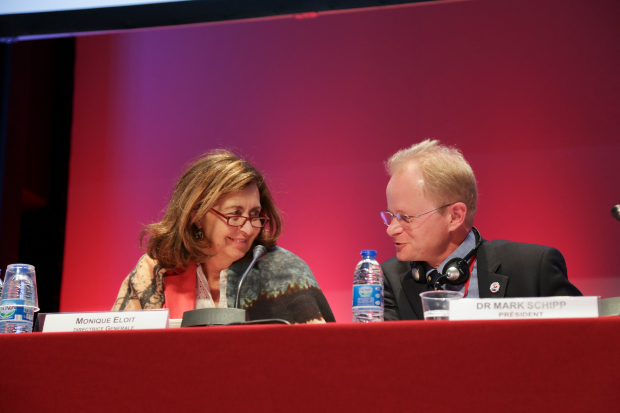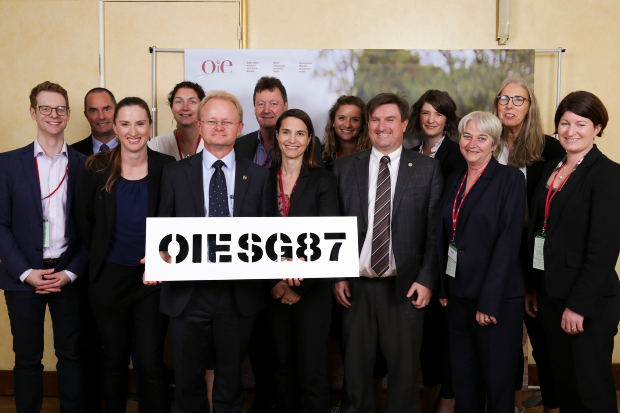What are some highs and lows about holding both positions at once?
Being OIE President is an enormous responsibility and opportunity. I have been greatly blessed to work with colleagues and the OIE Director General Dr Monique Eloit to develop the OIE’s strategic direction for the next five years through the seventh strategic plan. I am very interested in improving international animal health outcomes, which I strive to do every day.
As the Australian CVO, I have some significant responsibilities including emergency animal disease preparedness and response, overseeing our national animal health system, scanning for emerging threats and opportunities, working with the Chief Medical Officer to lead Australia’s response to antimicrobial resistance and encourage the veterinary profession in Australia and within this government department.
These two roles are complementary but they are also both very demanding, and there are times, particularly during crises, when it can become challenging juggling the roles and responsibilities of both. I am very fortunate to have a small team of advisers who keep me in check and assist me whenever and wherever they can!
Travelling is also a big part of the job. Whether this be to OIE Council meetings and the General Session in Paris, regional conferences or to Australian states to present on topical issues, I am privileged to be able to visit countries I never thought I would visit and to represent both Australia and the OIE. Unfortunately everywhere in the world is a long way from Australia.
What are your top priorities as OIE President?
I came into the OIE President role with three main objectives:
The first was to improve good governance and transparency processes within the OIE. An international standard setting body needs to ensure its processes are transparent, participatory and fair, whether that is in the process of recognising a country’s animal health status, assessing the performance of experts or the use of resources. Significant improvements have been made during the time I have worked with the OIE Council.
The second was to increase Member Country engagement in the processes of the OIE. When I joined the OIE as the Australian Delegate, I felt like the OIE was something that was done to me as member rather than something that was owned or directed by me as a member. Member country participation in the development of standards is critical if they are to adopt and apply those standards, and these standards are critical to human and animal health, international trade and the capacity of veterinary services. The patchy adoption of agreed OIE standards was an impetus to launch the OIE Observatory which will engage with all Member Countries to help them identify and rectify potential implementation barriers for OIE standards and guidelines.
My final priority was for veterinarians to have a greater voice in global discussions, such as on antimicrobial resistance and other One Health issues. Veterinarians are highly trained professionals that should be contributing at all levels of society. In Australia it was wonderful to see veterinarians stepping forward in response to the bushfires we experienced, and when diseases emerge such as COVID-19, veterinarians are uniquely placed to contribute to the solution.
Any advice for budding government vets?
I always tell students to remain open to opportunities in government veterinarian roles. You have so many options with a veterinary degree!
When I was a struggling vet student, I had no idea of the opportunities that would open up for me in terms of travel, responsibility and contribution. I have been very fortunate to represent Australia internationally and to work on issues of global significance. My work has affected multibillion dollar industries and I have been able to make valuable contributions in multiple areas such as food safety and security, animal health and also Australia’s national economy.
Good things will come to those who are enthusiastic, hard-working and team players. Remarkable careers within the public sector exist for vets that are open to such possibilities – go for it!



